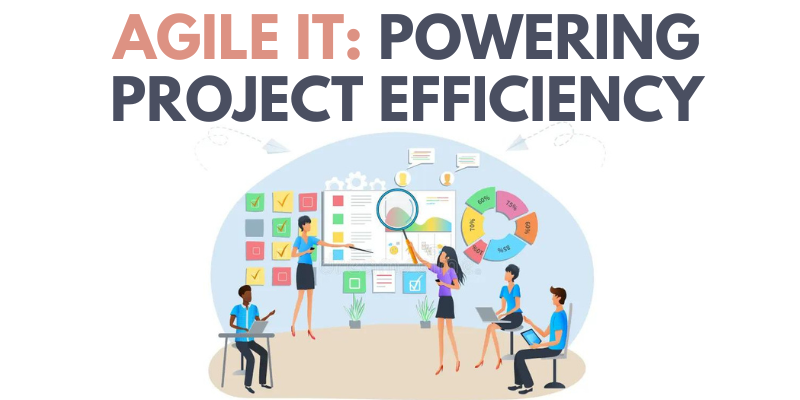In the fast-paced world of IT, traditional project management methods can often fall short when it comes to meeting the demands of ever-changing requirements and tight deadlines. That’s where Agile Development Methodologies come to the rescue. Agile approaches have revolutionized the way IT projects are executed, emphasizing flexibility, collaboration, and continuous improvement. In this article, we will delve into the world of Agile, exploring its various methodologies and how it enhances efficiency in IT projects.
Understanding Agile: A Paradigm Shift in Project Management
At its core, Agile is a mindset that prioritises adaptability and customer-centricity, making it an essential aspect of Freshers Jobs in the IT industry. Unlike traditional waterfall methodologies, Agile breaks down projects into smaller, manageable increments called sprints. This iterative approach allows for regular feedback and enables teams to adjust their course based on evolving requirements, resulting in faster delivery and higher customer satisfaction.
Scrum: Empowering Collaboration and Flexibility
One of the most well-known Agile approaches is Scrum, which is renowned for emphasising cooperation and excellent communication. It involves cross-functional teams working collaboratively towards common goals. Daily stand-up meetings, sprint planning, and retrospectives foster transparency and ensure that team members stay aligned and focused on achieving project milestones.
Kanban: Visualizing Workflows for Streamlined Progress
Kanban is all about visualizing workflow and limiting work in progress. With a Kanban board, teams can see at a glance what tasks are in the pipeline, in progress, or completed. This visual representation facilitates smooth workflow management, reduces bottlenecks, and enhances overall efficiency. Kanban’s flexibility makes it ideal for projects with continuously changing priorities.
Lean: Eliminating Waste and Maximizing Value
Derived from Lean manufacturing principles, Lean Agile is a key focus at Microsoft Careers, aiming to deliver maximum value to customers while minimizing waste. By identifying and eliminating non-essential activities, teams can optimize their processes, making them more efficient and responsive to customer needs. Lean Agile emphasizes continuous improvement, encouraging teams to learn from experiences and refine their approaches.
Extreme Programming (XP): Engineering Excellence for Quality Deliverables
XP is centered around engineering practices that promote high-quality deliverables. Test-driven development, continuous integration, pair programming, and frequent code reviews are some of the XP practices that ensure robust software development. By prioritizing code quality, XP reduces defects, enhances maintainability, and builds a culture of collective code ownership.
Agile Project Management Tools: Enabling Collaboration and Transparency
In the digital age, Agile project management tools have become indispensable for effective collaboration and transparency, including Cgi Careers for Freshers. Tools like Jira, Trello, and Asana provide platforms for teams to plan, track progress, and communicate seamlessly. These technologies provide transparency into the state of the project, allowing stakeholders to keep informed and make fact-based choices.
Conclusion
Agile Development Methodologies have become a driving force in the IT industry, transforming project management and delivery. By embracing Agile, IT teams can respond swiftly to changing requirements, improve collaboration, and continuously deliver value to their customers. Whether it’s Scrum’s emphasis on teamwork, Kanban’s focus on visualizing workflows, Lean’s waste reduction, XP’s engineering excellence, or the power of Agile project management tools, the adoption of Agile principles leads to enhanced efficiency in IT projects. As technology continues to evolve, Agile will undoubtedly remain a cornerstone of success, empowering teams to navigate the dynamic landscape of IT projects with confidence.
 India Unimagined! News, Travel, Finance, Blog & Government Schemes
India Unimagined! News, Travel, Finance, Blog & Government Schemes


